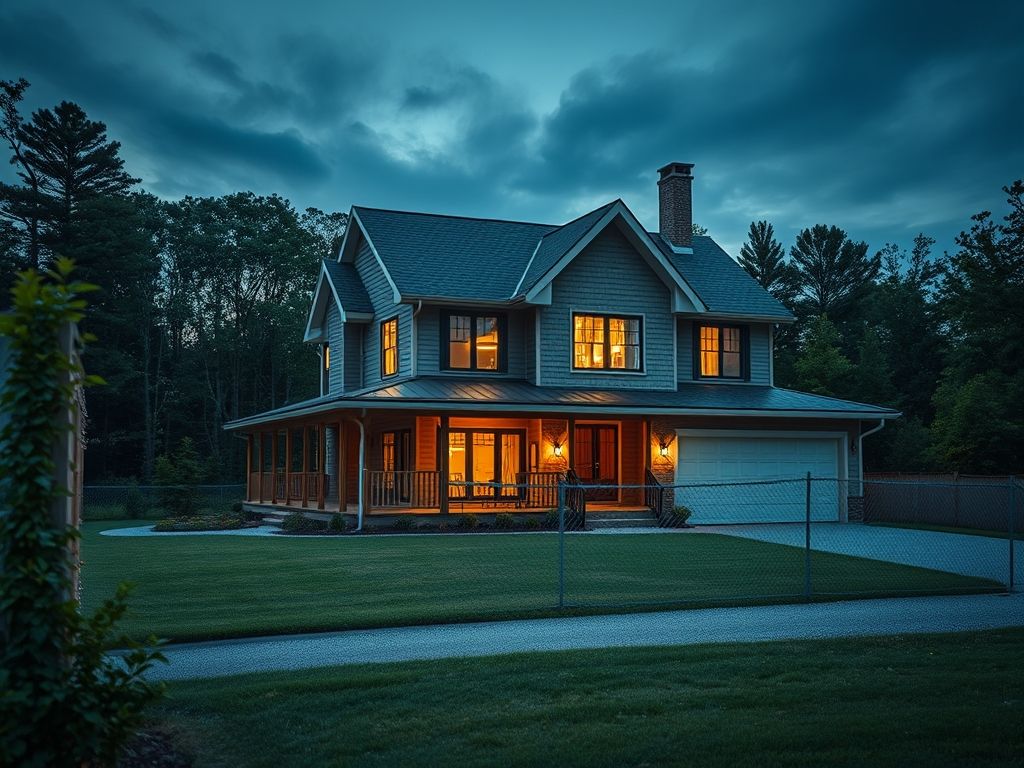What is Residential Construction?
Residential construction refers to the process of building or renovating homes and residential buildings. This encompasses a wide range of activities, from the initial design phase to the final touches that make a house a home. In Massachusetts, where the real estate market is vibrant, understanding residential construction is crucial for homeowners, real estate investors, and professional contractors.
The Importance of Residential Construction
Residential construction plays a pivotal role in shaping communities and providing shelter. The demand for housing in areas like Boston and Worcester is ever-growing, necessitating a robust construction sector. This building activity not only provides homes but also stimulates the economy by creating jobs and boosting local businesses.
Key Aspects of Residential Construction
- Design and Planning: This initial phase involves architects and designers creating blueprints that meet the homeowner’s needs while adhering to local building codes.
- Site Preparation: This includes clearing the land, excavation, and ensuring the site is ready for construction.
- Foundation Work: The foundation is crucial as it supports the entire structure. Various types of foundations, such as slab, crawl space, or basement, are used based on soil conditions and building design.
- Framing: This phase involves constructing the skeleton of the house, which includes walls, floors, and roofs.
- Utilities Installation: Essential systems like plumbing, electrical wiring, and HVAC (heating, ventilation, and air conditioning) are installed during this phase.
- Interior and Exterior Finishing: This final stage includes installing drywall, flooring, cabinets, and exterior elements like siding and roofing.
Common Questions About Residential Construction
1. What types of residential construction projects exist?
Residential construction projects can vary widely, including new home builds, home renovations, additions, and custom builds. Each type requires a different approach and level of expertise.
2. How long does residential construction typically take?
The timeline for residential construction can vary significantly based on the project size and complexity. A standard new home build in Massachusetts may take anywhere from 6 months to over a year, while smaller renovations might only require a few weeks.
3. What permits are needed for residential construction?
In Massachusetts, obtaining the necessary permits is crucial. This includes building permits, zoning permits, and possibly historical preservation permits if the project is in a designated area. The requirements can vary by city, such as Boston or Cambridge.
4. How can homeowners ensure quality in residential construction?
Homeowners can ensure quality in residential construction by conducting thorough research, hiring reputable contractors, and maintaining clear communication throughout the project. It’s also beneficial to seek recommendations and read reviews from previous clients.
Practical Applications of Residential Construction
Understanding residential construction can empower homeowners and investors to make informed decisions. Here are a few practical applications:
- Investing in Property: Knowledge of residential construction can help real estate investors assess property value, potential renovations, and overall investment viability.
- Home Renovations: Homeowners looking to remodel can better communicate their vision to contractors, ensuring that their needs are met.
- DIY Projects: Understanding basic principles of residential construction can help homeowners tackle DIY projects safely and effectively.
Related Concepts in Residential Construction
Residential construction is interconnected with several other concepts, including:
- Commercial Construction: Involves building structures intended for business use, which shares many principles with residential construction but operates on a larger scale.
- Sustainable Building: Focuses on environmentally friendly construction practices, which are becoming increasingly popular in residential projects.
- Home Inspection: A critical step in the home buying process that assesses the condition of a property before purchase.
Conclusion
Understanding what is residential construction is essential for anyone involved in the housing market in Massachusetts. Whether you’re a homeowner looking to build your dream home, a contractor navigating the complexities of construction, or an investor seeking profitable opportunities, a solid grasp of residential construction principles will serve you well. As you embark on your construction journey, remember to engage with knowledgeable professionals and stay informed about local building regulations.
Reflect on the possibilities that residential construction offers and consider how you can apply this knowledge to your own projects or investments. The world of construction is not just about bricks and mortar; it’s about creating spaces where memories are made and lives are lived.







